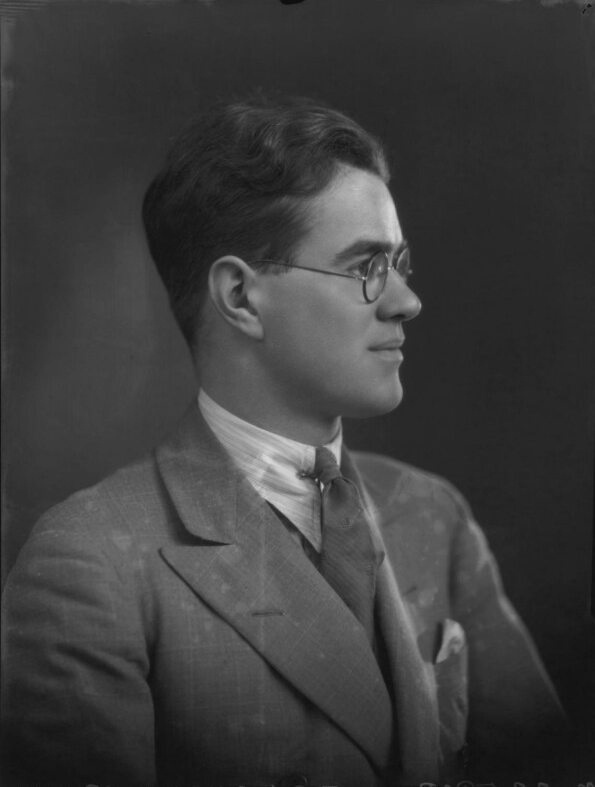'The outstanding British Baptist historian'
There is an annual lecture named after him, and modern Baptist historians cite his influence. So who was William Thomas Whitley?
 December 18 marks the 70th anniversary of the death of William Thomas Whitley. You might recognise the surname because it is the same Whitley whom the annual Baptist lecture is named after. Theologian Helen Paynter will deliver the 2018 lecture, which has the theme Dead and Buried? Attending to the voices of the victim in the Old Testament and today. Helen has been blogging about preparing for the lecture here.
December 18 marks the 70th anniversary of the death of William Thomas Whitley. You might recognise the surname because it is the same Whitley whom the annual Baptist lecture is named after. Theologian Helen Paynter will deliver the 2018 lecture, which has the theme Dead and Buried? Attending to the voices of the victim in the Old Testament and today. Helen has been blogging about preparing for the lecture here.
But why is there a lecture named after Whitley?
On the news of Whitley’s death, Seymour J. Price wrote a tribute in The Baptist Quarterly, which captured Whitley's contribution to Baptist history in general and his instrumental role in the creation of the Baptist Historical Society in particular. He was, Price wrote, 'the outstanding British Baptist historian'.
It was with profound regret that we heard of the death of our President, William Thomas Whitley, M.A., LL.M., LL.D., F.T.S., F.R.Hist.S., in his eighty-seventh year, on Thursday, December 18th, 1947. By common consent he was the outstanding British Baptist historian. No one had done more to preserve and interpret the records of our past.
We owe a great debt to the research pioneers, Crosby, Ivimey, Rippon, Underhill and others, but all would agree that the debt owed to Dr. Whitley is immeasurably greater.
Baptist history and traditions were his close study for sixty years. To this study he brought a trained and disciplined mind, with the result that obscure and disputed points were settled, inaccuracies corrected, and conclusions reached which have stood the test of time. His knowledge of dates, persons and churches was encyclopaedic, and this knowledge he cheerfully placed at the service of others.
He was known among Baptists of the five continents as a statesman of international repute, and his correspondence was world-wide.
He was the founder and driving force of our Society, and his service during the past forty years can hardly be measured.
Prior to the Society's formation he enlisted, and obtained, warm-hearted support from Dr. J. H. Shakespeare, Principal G. P. Gould, Judge William Willis, and others who were high in the counsels of the denomination.
He convinced them, and through them, the Baptist Union Council, of the urgency and usefulness of such a Society; and he it was who, on the instruction of the Council, moved the resolution at the fourth session of the Assembly at Bloomsbury on Thursday, April 30th, 1908, "That the members of the Assembly of the Baptist Union cordially approve of the proposal to form a Baptist Historical Society, and trust that this 'important denominational work will receive practical and general support."
Naturally Dr. Whitley was elected the first secretary and, with unselfish devotion to the work of the Society, he retained this office for 27 years.
Baptist historians who have followed in his footsteps have acknowledged their debt to Whitley. Barrie White, who died earlier this year, said the work of Whitley saw that 'for the first time Baptist history was studied in a systematic way and by modern methods.' (cited here: https://biblicalstudies.org.uk/pdf/bq/37-4_159.pdf).
John Briggs said in 1997 that Whitley ‘for much of his life was the Baptist Historical Society and The Baptist Quarterly incarnate. But for his vision and energy, the Society would not be the lively body that it is today.’
If we wanted to read a history of the Baptists today, we might turn to more recent volumes by David Bebbington, Roger Hayden or the 4-vol series from the Baptist Historical Society written by Barrie White, Raymond Brown, John Briggs and Ian Randall.
However all these histories in some way build on the work of Whitley. The establishment of the annual lecture in his name is designed as an encouragement to research and writing by Baptist scholars, and to enable the results of this work to be published.
So we give thanks for the life of W. T. Whitley and his commitment to the establishment of Baptist history as an important part of our shared life.
And if you don’t know the Baptist story, visit the Baptist Historical Society website for further resources or information on how to subscribe to the Baptist Quarterly. It’s a story full of surprising figures and moments, telling a story of a people convicted by the call of God.
This is a second article written by members of the Baptist Historical Society, highlighting people and events from our past. As Baptists, sometimes the knowledge of our past is sketchy, and yet it reaches back over 400 years. We hope, through this series of bi-monthly articles, to encourage your interest and see the value in knowing our story.
For a list of the many works written by Whitley see here.
More Baptist Historical Society articles:
Hymn writer anniversary marks Baptist women focus - the October issue of The Baptist Quarterly marks the tercentenary of the birth of Anne Steele (1717-1778), a prolific Baptist hymn writer, with an issue by women, about women.
Baptist Times, 08/12/2017